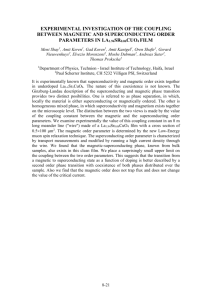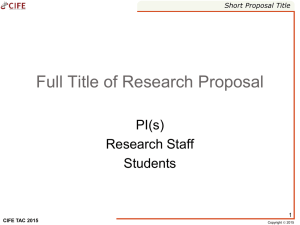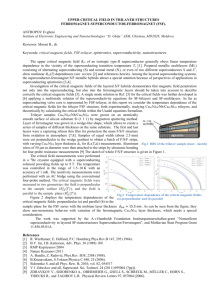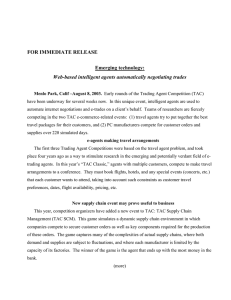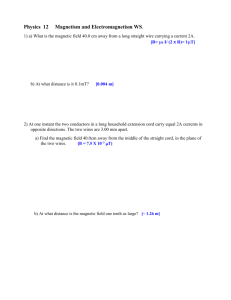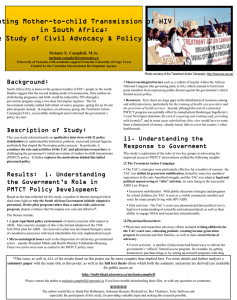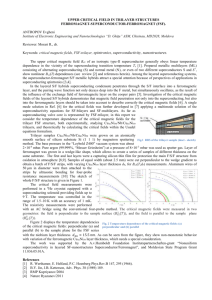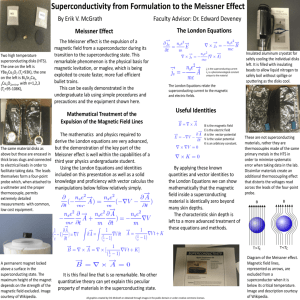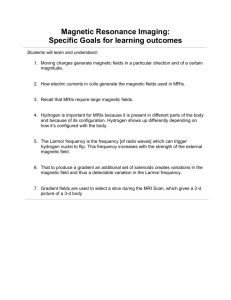Supplementary Methods - Word file (23 KB )
advertisement
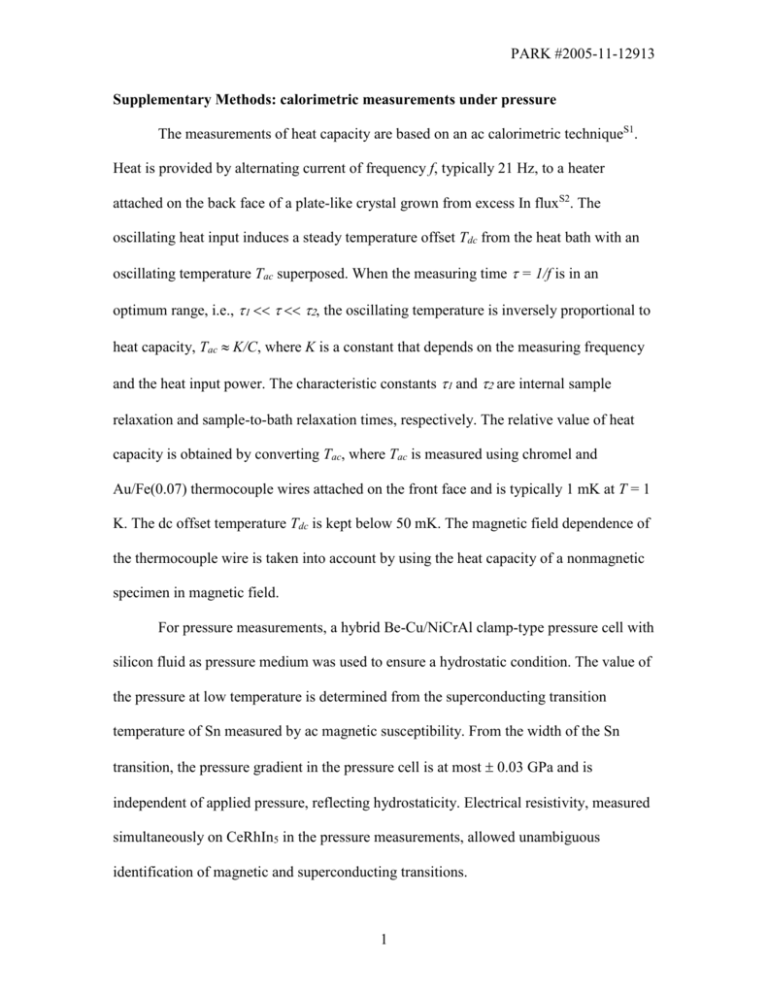
PARK #2005-11-12913 Supplementary Methods: calorimetric measurements under pressure The measurements of heat capacity are based on an ac calorimetric techniqueS1. Heat is provided by alternating current of frequency f, typically 21 Hz, to a heater attached on the back face of a plate-like crystal grown from excess In fluxS2. The oscillating heat input induces a steady temperature offset Tdc from the heat bath with an oscillating temperature Tac superposed. When the measuring time = 1/f is in an optimum range, i.e., the oscillating temperature is inversely proportional to heat capacity, Tac K/C, where K is a constant that depends on the measuring frequency and the heat input power. The characteristic constants and are internal sample relaxation and sample-to-bath relaxation times, respectively. The relative value of heat capacity is obtained by converting Tac, where Tac is measured using chromel and Au/Fe(0.07) thermocouple wires attached on the front face and is typically 1 mK at T = 1 K. The dc offset temperature Tdc is kept below 50 mK. The magnetic field dependence of the thermocouple wire is taken into account by using the heat capacity of a nonmagnetic specimen in magnetic field. For pressure measurements, a hybrid Be-Cu/NiCrAl clamp-type pressure cell with silicon fluid as pressure medium was used to ensure a hydrostatic condition. The value of the pressure at low temperature is determined from the superconducting transition temperature of Sn measured by ac magnetic susceptibility. From the width of the Sn transition, the pressure gradient in the pressure cell is at most 0.03 GPa and is independent of applied pressure, reflecting hydrostaticity. Electrical resistivity, measured simultaneously on CeRhIn5 in the pressure measurements, allowed unambiguous identification of magnetic and superconducting transitions. 1 PARK #2005-11-12913 Supplementary methods references S1. Sullivan, P. F. & Seidel, G. Steady-state, ac-temperature calorimetry. Phys. Rev. 173, 679-685 (1968). S2. Hegger, H. et al. Pressure-induced superconductivity in quasi-2D CeRhIn5. Phys. Rev. Lett. 84, 4986-4989 (2000). 2


